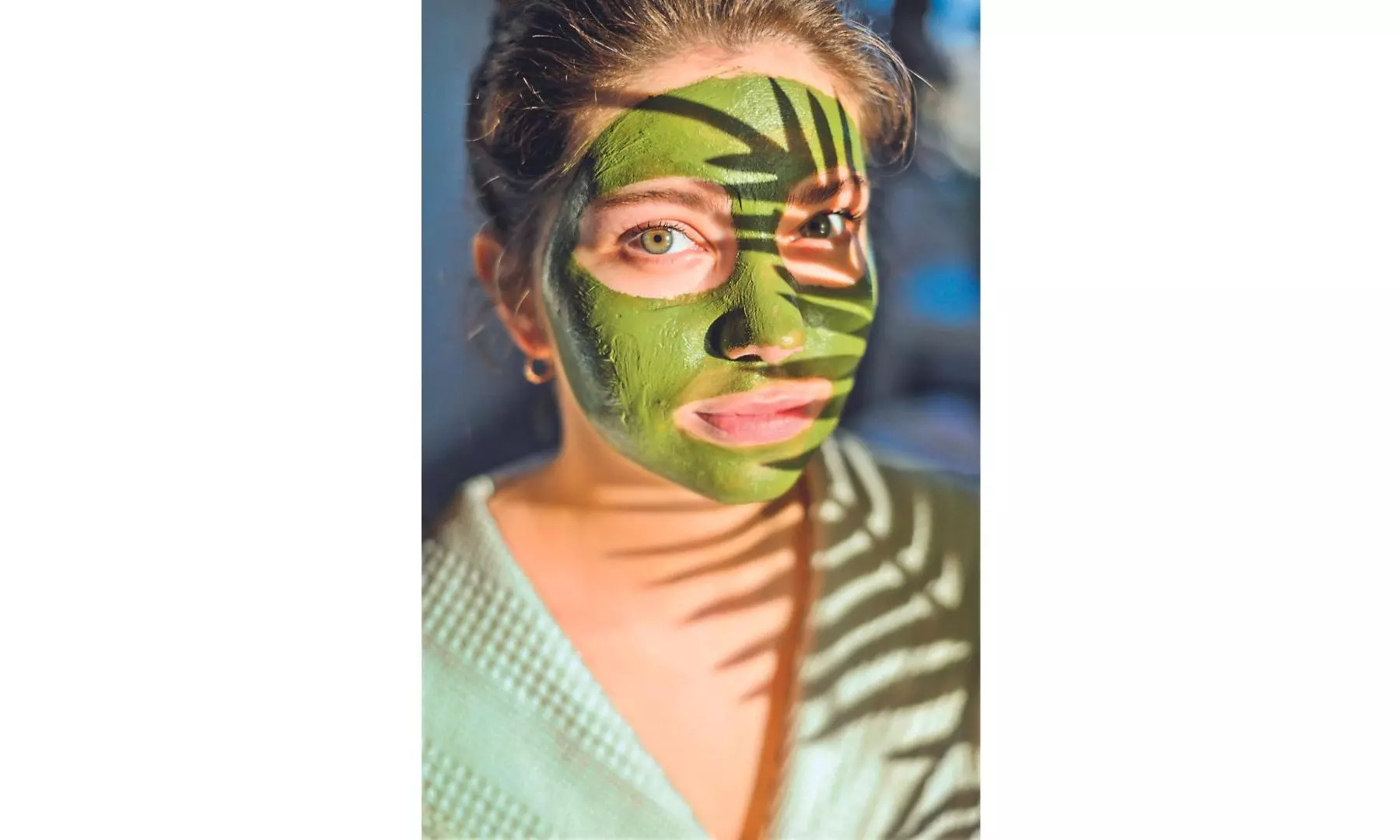Glow with algae

If you want your skin to glow, stay young and fresh lifelong, and remain hydrated with no signs of ageing, then opt for algae hacks to see the results. An alga, as a natural plant growing on marine and marshy surfaces, can weed out half of your troubles. Algae, now present in a range of skincare and beauty products, can serve as a skin therapy in wellness clinics or under the close supervision of a skin specialist, seemingly providing the solution.
Organic Skin Healer
“Algae are a diverse group of organisms found in various aquatic environments. They are intense moisturisers with powerful regenerative properties that can stimulate blood flow to the skin. Over time, alga has become a crucial ingredient in skincare for its multiple benefits. It promotes hydration and detoxification, enhances product texture, and is good for anti-aging,” says aromatherapist Dr Blossom Kochhar, the founder of Blossom Kochhar Aroma Magic, India’s pioneering and largest aromatherapy brand.
Supporting her views, reputed dermatologist and wellness expert Dr Kiran Sethi concedes: “If you stroll by the lakes, streams, ponds, or sea, you might stumble upon a cluster of algae in oceanic waters in some form or another. They are simple, chlorophyll-containing organisms and can range from microscopic phytoplankton to large seaweeds.”
Dr Sethi, who is also the founder of Isya Aesthetics, acknowledges that algae, as a saltwater resource, are known for their beneficial constituents. An alga is rich in compounds like mycosporine-like amino acids (MAAs), polysaccharides, and polyphenols that help fight oxidative stress and aging. Many studies are widely available with in-depth analysis on how this works.”
Algae Craze
Dr Ruby Sachdev, a consultant aesthetic physician at Gleneagles Hospital in Bengaluru, comments on the popularity of algae in skincare, stating that the plant’s high concentration of vitamins, minerals, and antioxidants, which offer numerous benefits like hydration, anti-ageing, and anti-inflammatory properties, are responsible for its trending quality.
Application Method
One can find single-celled algae as a substantial component in a slew of skincare products. “Incorporate it into both your serums and moisturisers (or either of the two). You can also apply an algae mask once a week for deep nourishment. This is what a basic routine may look like,” instructs Dr Sethi.
Natural Beauty
“Algae are used in a variety of beauty products because of their nourishing supplements. Hydrating seaweed packs, anti-pigmentation glossy packs, and anti-acne calamine packs may contain algae,” dispenses Dr Kochhar.
Algae Versus Allergy
Despite algae being a natural plant, could it spur allergic eruptions on specific skin types? “Most skin types can suitably gain from algae treatments, especially parched, ageing, or sensitive skin,” states Dr Sethi and Dr Kochhar adds, “Dry, mature, oily, or acne-prone skin, as well as a combination skin type can use algae-based skincare.”
Possible allergic reactions might include redness, itching, and irritation. “Marine algae treatment is generally congenial to most skin types, especially the arid, rough, and mature ones. However, silky-smooth, soft, and sensitive skin types are susceptible to experiencing irritation. Therefore, a patch test is essential,” opines Dr Sachdev.
Benefits
Hydration:
Polysaccharides in algae help retain moisture, prevent dryness, reduce withering, soothe inflammation, and protect the skin from environmental damage.
Anti-aging:
Antioxidants in algae fight free radicals and reduce gingivitis. Peptides and amino acids increase skin suppleness.
Detoxification:
They help remove toxins and impurities from the skin.
Nourishment:
Algae’s vitamins and minerals nourish skin. Their regenerative qualities help repair and replenish cells.
Among the most potent antioxidants, Astaxanthin, derived from Icelandic red microalgae, is 6,000 times stronger than vitamin C.

